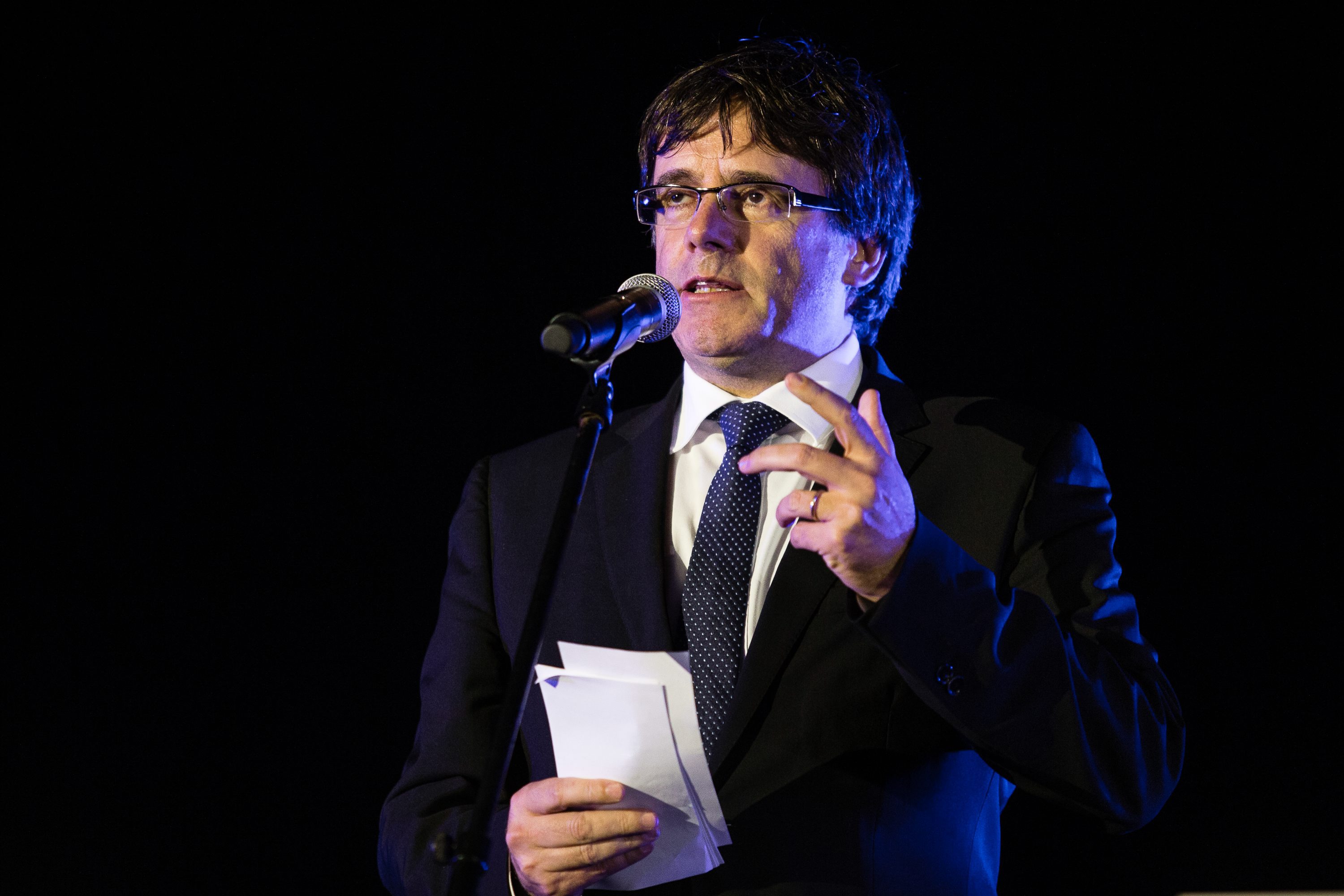THE Mossos d’Esquadra, Catalunya’s police force, launched ‘Operation Cage’ this morning in an attempt to locate and arrest Carles Puigdemont, the separatist leader who has lived in exile for seven years.
But who is Carles Puigdemont and why has his brief reappearance in Barcelona prompted a massive manhunt that has seen police officers block off exits from the city and search underground sewers?
Born in Amer, a small village in the province of Girona, a young Carles dropped out of university to pursue a career in journalism.
He quickly rose through the ranks at El Punt, a Catalan language newspaper with a fiercely nationalist outlook, where he soon became editor-in-chief.
Puigdemont left journalism in 2006 to enter the world of politics where he joined Convergence and Union (CiU), a center-right pro-independence alliance including the Democratic Convergence of Catalonia (CDC) which ruled Catalonia for 23 consecutive years until 2003 under the leadership of Jordi Pujol.

He was elected as an MP for the constituency of Girona, a role he held until 2017.
Puigdemont’s rise coincided with a radicalisation of Catalan nationalism – in 2010, Spain’s Constitutional Court rejected an amendment of Catalunya’s State of Autonomy approved by the Spanish parliament, effectively ruling that there is only one nation within Spain, and threw out a new fiscal pact proposed by Artur Mas, the former regional premier, designed to produce a fairer tax system.
In 2011, he became the Mayor of Girona. Five years later, after an agreement was struck between Junts pel Sí (JxSí) and the Popular Unity Candidacy (CUP), Puigdemont was elected as the 130th President of the Government of Catalunya.
As President, Puigdemont followed a ‘road-map’ for independence initiated by his predecessors.
On September 7, 2017, despite the steadfast opposition of the conservative Partido Popular (PP) Madrid government led by Mariano Rajoy, he approved laws permitting an independence referendum.

On October 1, 2017, the referendum took place, with 92% of voters opting for independence, albeit with a turnout of just 43%.
The referendum hit headlines across the world after videos and pictures spread of the Policia Nacional and Guardia Civil violently shutting down polling stations and removing voters.
Across Catalunya, over 1,000 civilians were injured in the violence.
The Constitutional Court declared the referendum to be a breach of the Spanish Constitution and, therefore, illegal.
On October 27, after much deliberation, the Catalan parliament, known as the Generalitat, unilaterally declared independence, prompting the most significant political crisis in Spain since the Franco dictatorship.
The Rajoy-led government immediately dismissed Puigdemont and his allies, and imposed direct rule on Catalunya before calling new elections.
Criminal charges of rebellion, sedition and misuse of public funds were brought against Puigdemont and other members of his government, prompting him to flee Spain in the boot of a car over the French border.
Ever since, Puigdemont has lived in Belgium. In 2019, he was elected as an MEP (Member of European Parliament), allowing him to continue his political work from Brussels.

He is now leader of Junts per Catalunya, a conservative, pro-independence party that features many former members of Puigdemont’s government.
After an inconclusive national election in July 2023, Pedro Sanchez, leader of the socialist PSOE, turned to Puigdemont’s separatists to source the votes needed to command a majority within the Cortes, the parliament, and thus become Prime Minister.
As part of the deal, Sanchez agreed to approve an amnesty law designed to quash criminal charges against those involved in the independence drive in 2017.
Puigdemont was expected to be the most high-profile beneficiary of the controversial pact, which was fiercely criticised by the PP and far-right Vox, but a court ruling last month judged that the amnesty did not apply to the charge of embezzlement of public funds.
As such, an arrest warrant against him remains active.
In May’s Catalan regional election, Puigdemont’s Junts party came second with 35 seats in the Generalitat, behind the pro-unity Socialists led by Salvador Illa.
Earlier this month, Illa successfully negotiated a deal with the pro-independence, left-wing Esquerra Republicana (ERC) to support his investiture as new regional president in exchange for key concessions including a new financial modelling system described as a step towards ‘fiscal sovereignty’.

During the election campaign, Puigdemont had promised to attend the investiture debate in person, even with the arrest warrant hanging over his head.
This morning, Puigdemont returned to Spain for the first time since 2017.
Flanked by members of his Junts party, Puigdemont gave a brief speech to thousands of pro-independence supporters outside the regional parliament building, located in the Parc de la Ciutadella in the centre of Barcelona.
After the speech, Puigdemont quickly disappeared, prompting police to attempt to block all exits out of the Catalan capital to impede him from fleeing Spain once more.
According to reports, police are searching for the location of a white Honda, owned by a now-arrested Mossos officer accused of aiding the escape, which they believe Puigdemont used to escape the city and likely head towards the French border.
It appears that, for now, Puigdemont has yet again successfully eluded the police.
Click here to read more Spain News from The Olive Press.








